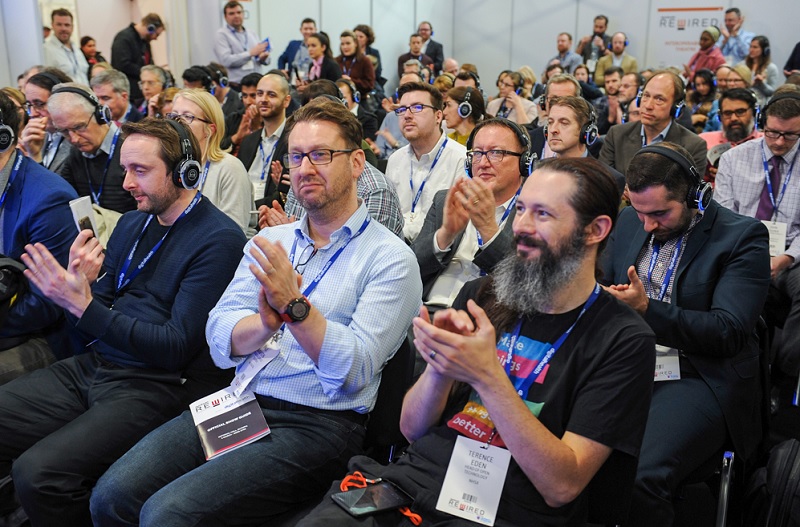One of the last major industry events held prior to the coronavirus lockdown; Digital Health Rewired 2020 provided a timely overview to the current challenges and opportunities within the MedTech sector.
Held in earlier this month, against the backdrop of the initial cases of COVID-19 in the UK, there were fears the conference would be postponed, but it was able to continue, albeit with plenty of free hand sanitiser and elbow handshakes.
The conference itself featured talks from some of the biggest names in the digital health arena, including NHSX chief executive, Matthew Gould; Jacqueline de Rojas, president of TechUK; Sarah Wilkinson, chief executive of NHS Digital; and NHSX chief digital officer, Tara O’Donnelly.
On the first day, the Leadership Summit speeches were overridingly focused on diversity and inclusion, with de Rojas highlighting how diversity in the development of healthcare technologies is the only way to ensure it caters to all patients without discrimination.
Dr Shera Chok, co founder of The Shuri Network, continued this theme, telling the crowd: “You cannot outsource diversity and inclusion to HR, or your BAME or LGBTQ networks. This is something we must all own.”
On Day Two, Caroline Criado-Perez, a campaigner and author of Invisible Women, exposed a gender bias in the majority of healthcare research, revealing how general studies often exclude women altogether, inevitably leading to greater health risks for females and underdeveloped health products.
In Gould’s talk, he confirmed that members of the Digital Aspirant programme – a move by Heath Secretary, Matt Hancock, to support NHS providers in delivering core digital capabilities – would be launched in waves between now and 2024.
The first wave was announced earlier this month, with 23 trusts being given £28m between them.
This staggered approach is intended to allay anxieties over application deadlines within NHS organisations.
And Wilkinson’s talk was speedily changed to address the coronavirus outbreak and its likely impact on the sector.
She said digital health channels would have a crucial role to play in the crisis, with a need to shift away from using the NHS 111 call centre to online pathways.
While the turnout at the two-day event was, predictably, lower than expected, there was still a sense of occasion and a real buzz about the space, with packed conference theatres.
And the Pitchfest event provided delegates with insight into the very-latest up-and-coming healthcare technology innovations.
The competition gave delegates an opportunity to present their game-changing ideas to a panel of expert judges, with Donnelly hosting the final, with the winner getting the chance to test their concept in a real-world care setting.
The winner for 2020 was Celsium, a device that is placed under a patient’s armpit and is capable of providing a temperature measurement every four seconds.

Digital Health Rewired 2020 went ahead against the backdrop of the early cases of coronavirus in the UK, highlighting the potential for digital technologies to help as the country goes into lockdown and pressure on NHS services increases
Unlike a traditional thermometer, it is entirely non-invasive.
Elsewhere during the event, the Digital Health Data Labs enabled delegates to find out more about the use of data and data science tools, platforms and techniques.
The second day also saw an exhibition showcasing hundreds of companies and thousands of technological innovations from developers of digital software,ranging from AI-driven unified platforms to electronic patient records and online collaborative networks
Laura Foster-Devaney of media partner, Silver Buck, said: “With a wonderfully-refreshing focus on promoting diversity and inclusion as the NHS ramps up digital transformation, and with a healthy dose of reality in addressing the current health crisis; the event was contemporary and relevant while maintaining a strong focus on the backbone of improvement and progress in the NHS.”
